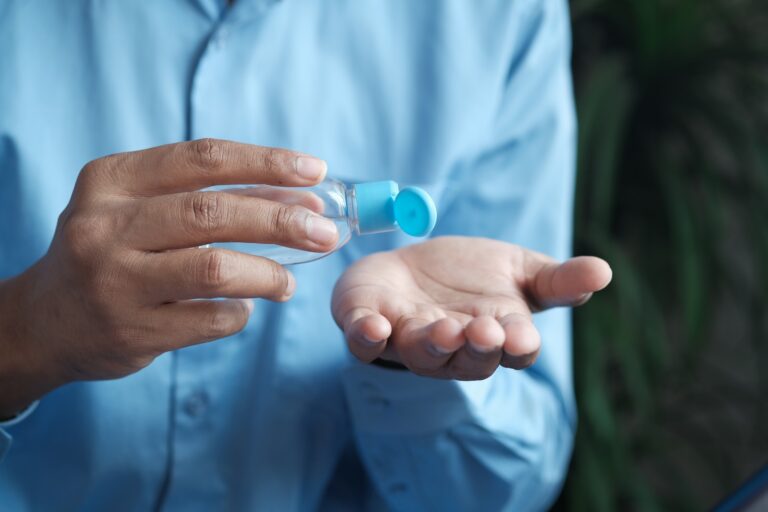Paroxetine is an antidepressant that has been shown to improve PE symptoms. It is also an effective treatment for depression and anxiety. It is often prescribed off-label for PE by doctors.
Paroxetine is an SSRI that works by blocking the serotonin transporter, increasing the concentration of synaptic serotonin. It is an FDA-approved drug for anxiety disorders, depression, panic attacks, PTSD, OCD, PMDD and associated vasomotor symptoms of menopause.
Dosage
The recommended dosage of paroxetine for PE is 10 to 40 mg per day. It’s important to talk to your doctor before you start taking this medication. It’s not right for everyone, and it can cause side effects like dizziness and nausea. It’s also not suitable for men who have heart disease or have issues with blood clotting.
There are several different treatments for PE, including behavior therapy and medications. Paroxetine is one of these medications, and it can be used to help with a variety of symptoms, including anxiety, depression, and sleep disorders. It works by blocking the serotonin receptors in the brain and preventing it from being reabsorbed. This allows more serotonin to be available for the things it’s needed for, such as regulating mood.
A recent study found that paroxetine can improve the ejaculation latency time in men with PE. The study involved 100 men who were diagnosed with PE and had an ejaculation latency time of less than three minutes. The participants were randomly assigned to receive either placebo, paroxetine, or tadalafil. The results showed that paroxetine significantly improved IELT in PE patients.
Besides paroxetine, other drugs that can be used to treat PE include tadalafil and dapoxetine. However, these medications are not FDA-approved and may not work for all patients. Behavioral techniques and psychotherapy can also be useful in treating PE, as they can help to address the root cause of the problem.
Side effects
Premature ejaculation is a difficult condition to treat, but it’s possible to overcome with medication and behavioral techniques. Selective serotonin reuptake inhibitors (SSRIs) such as paroxetine have been shown to be effective in treating PE. These medications are usually prescribed for depression, but they also have a side effect of delaying orgasm. In a recent study, paroxetine was shown to be more effective than fluoxetine, sertraline and placebo in increasing intravaginal ejaculatory latency time (IELT).
SSRIs like paroxetine can be taken orally at a dosage of 10 to 40mg per day to manage PE. The drug increases the levels of serotonin in the brain, which can have a positive impact on your emotions and mood. It can also help you last longer in bed, thereby improving your sexual performance.
If you’re interested in taking paroxetine for PE, it’s important to consult a doctor before starting treatment. They can determine if the medication is right for you and discuss other alternative treatments.
Other SSRIs such as citalopram and escitalopram have also been shown to be effective in delaying orgasm. In addition, a PDE-5 inhibitor such as sildenafil or tadalafil may be used in combination with an SSRI to improve PE. In addition to medication, a health care professional can recommend self-help strategies such as therapy and stress reduction.
Precautions
Premature ejaculation can be caused by a variety of factors including anxiety, body image issues, relationship problems, and sexual trauma. These issues can be addressed with behavioral techniques, psychotherapy, and medications. Paroxetine, which is an SSRI, has been shown to be an effective medication for PE. It can be taken orally in a concentration of 10-40 mg each day. It increases serotonin levels in the brain and helps you last longer in bed.
It also reduces the reuptake of serotonin in the brain, helping you feel calm and relaxed during sexual intercourse. It can be used with or without a prescription. However, you should not use it if you have a history of depression or heart conditions.
If you are unsure whether paroxetine is safe for you, discuss it with your doctor. He or she may recommend other treatments that are just as effective. These treatments include a combination of medications and behavioral techniques. A phosphodiesterase-5 (PDE-5) inhibitor, such as sildenafil (Viagra), has also been shown to be an effective treatment for PE.
Medications such as paroxetine, clomipramine, and tadalafil (Cialis) have been found to be effective in delaying ejaculation. These drugs have been around for decades and are safe for most people. Moreover, they are easy to administer, allowing you to delay ejaculation during sexual intercourse. Besides these, there are several over-the-counter products available that can be used to treat PE. These products include delay sprays and wipes. These products contain lidocaine, which is a well-studied and safe drug.
Overdose
Premature ejaculation is a common problem in men that can be caused by both psychological and physical factors. It can affect both single and long-term relationships and can cause a great deal of stress for the sufferer. The good news is that it can be treated. Behavioral techniques and medication can be used to treat PE but it is important to find a treatment that works for you.
One option is paroxetine, which is an antidepressant that is typically prescribed for depression and anxiety disorders. However, it has also been found to help with PE by increasing the amount of serotonin in the brain. It is available as an oral tablet in a 20mg concentration and can be taken daily or even just 3-4 hours before sex. Several studies have shown that taking the drug this way can significantly decrease the risk of PE.
Another way to combat PE is to take a PDE-5 inhibitor, such as sildenafil or tadalafil. These are medications that can be used to treat erectile dysfunction and have been found to be effective in reducing the incidence of PE. However, they cannot be used in conjunction with SSRIs such as paroxetine.
It is also important to note that if your PE is caused by a medical condition, such as prostate cancer or inflammation of the prostrate gland (prostatitis), treating the underlying condition should reduce or eliminate the symptoms. Otherwise, treatment is generally based on behavioural therapy or medication.
See Also:



